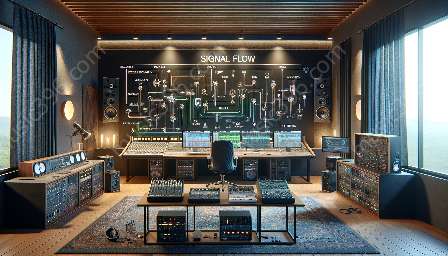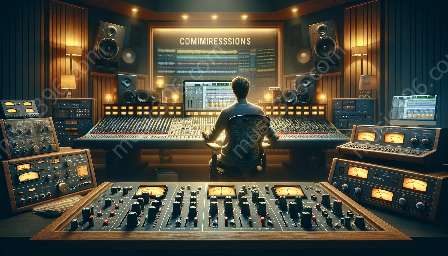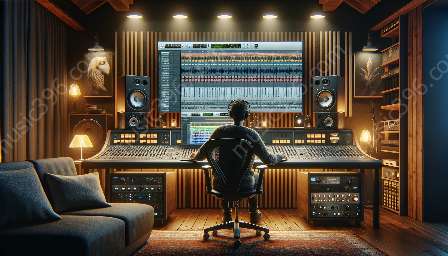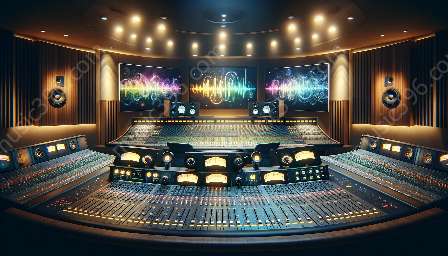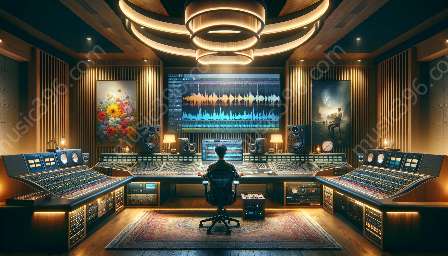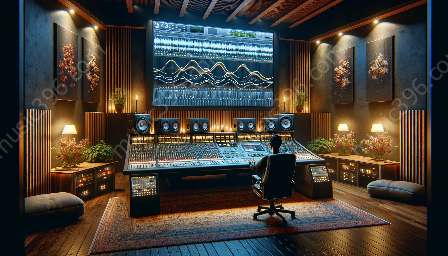As technology advances, the use of automation in audio mixing raises important ethical considerations. Automation in mixing has implications for the creative process, workflow efficiency, and the overall quality of audio mixing and mastering. In this topic cluster, we will explore the ethical issues related to automation in audio mixing, its compatibility with the use of automation, and its impact on audio mixing and mastering.
The Use of Automation in Mixing
Automation in audio mixing refers to the use of software or hardware to control and adjust parameters such as volume, effects, panning, and more, without manual intervention. This allows for precise adjustments and repetitive tasks to be automated, enhancing efficiency and consistency in the mixing process.
Audio Mixing & Mastering
Audio mixing involves combining and balancing individual tracks to create a cohesive and impactful sound. Mastering, on the other hand, is the final step in the audio production process, where the mixed tracks are prepared for distribution by optimizing their overall sound quality, loudness, and consistency.
Ethical Considerations
Now, let's delve into the ethical considerations related to automation in audio mixing:
1. Creativity vs. Automation
One ethical consideration is the impact of automation on the creative process. While automation can streamline repetitive tasks, some argue that excessive automation may diminish the artistic and human input in the mixing process. Finding the right balance between leveraging automation for efficiency and preserving creative expression is crucial.
2. Job Displacement
Automation in mixing raises concerns about job displacement within the music production industry. As automation tools continue to advance, there is a potential shift in the roles and demand for traditional mixing engineers and technicians. Ethical considerations arise regarding the impact on livelihoods and the value of human expertise in audio production.
3. Access and Equity
The accessibility and affordability of automation tools for audio mixing also bring about ethical considerations. While automation can democratize access to professional-level mixing capabilities, there are concerns about widening the gap between those with access to advanced automation tools and those without, potentially creating inequalities within the industry.
4. Transparency and Authenticity
Another consideration is the transparency and authenticity of automated mixing processes. Disclosure of the extent to which automation is employed in a mix, and ensuring that the artistic intent is preserved, raises important ethical questions. Maintaining the integrity of the final product and providing transparency to listeners are essential aspects of ethical audio production.
Impact on Audio Mixing & Mastering
How automation in audio mixing impacts the overall process and the quality of audio mixing and mastering deserve examination. Here are several notable insights:
1. Workflow Efficiency
Automation significantly enhances workflow efficiency by performing repetitive tasks with precision and consistency. This allows engineers to focus on creative decision-making and higher-level mixing techniques, ultimately improving overall productivity and time management.
2. Quality Control
When used judiciously, automation can contribute to improved quality control in audio mixing and mastering. By maintaining a consistent level of adjustments and effects application, automation reduces the likelihood of human error and ensures a more predictable outcome.
3. Artistic Integrity
The ethical use of automation preserves artistic integrity by complementing, rather than replacing, human decision-making. Balancing automation with human input maintains the unique characteristics and emotional impact of a mix, reinforcing the importance of artistic intent within ethical audio production practices.
4. Adaptability and Innovation
Automation tools foster adaptability and innovation within the audio mixing and mastering process. They empower engineers to explore new creative possibilities, experiment with unconventional techniques, and generate unique sonic landscapes, thus contributing to the advancement of artistic expression in audio production.
Conclusion
It is evident that the ethical considerations related to automation in audio mixing are multifaceted and significant. As technology continues to shape the landscape of audio production, navigating the ethical implications of automation becomes essential for maintaining the balance between efficiency, creativity, and authenticity. Understanding the compatibility of automation with the use of automation tools, and the impact of automation on audio mixing and mastering, is pivotal for guiding ethical decision-making in the evolving realm of music production.



